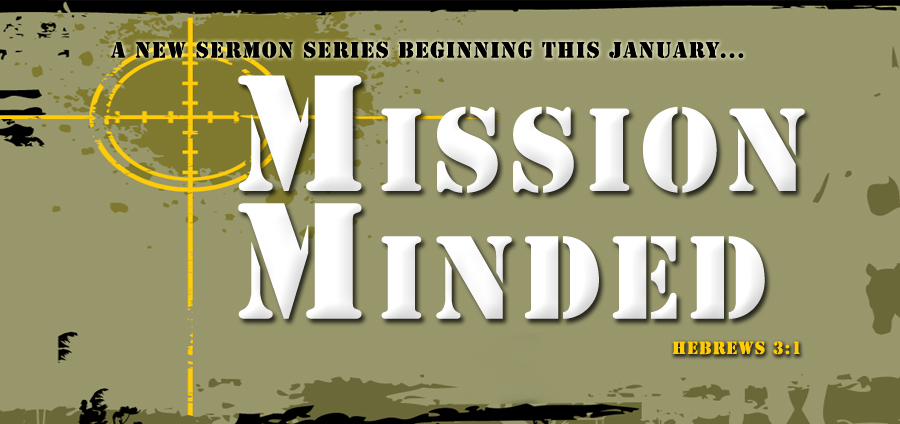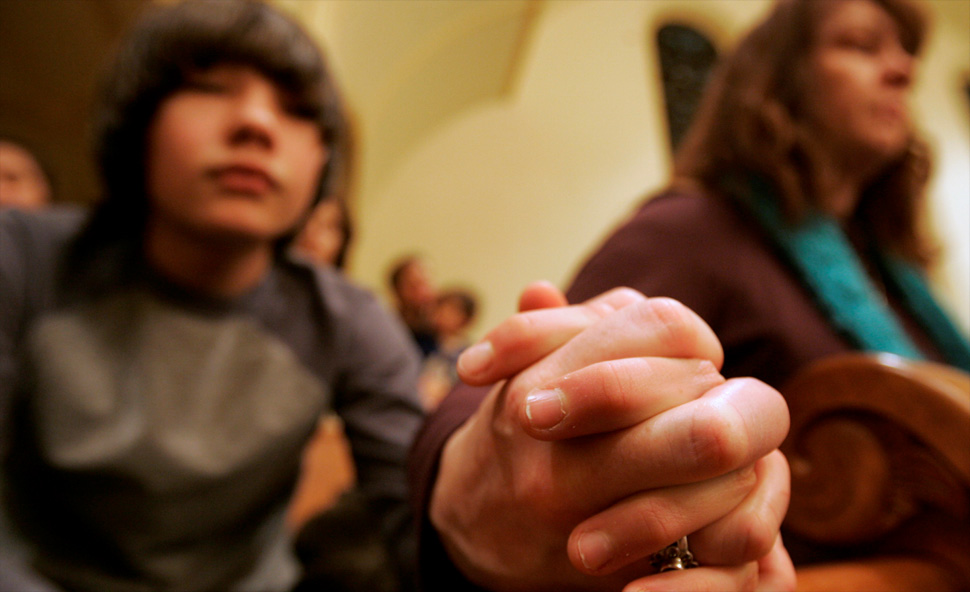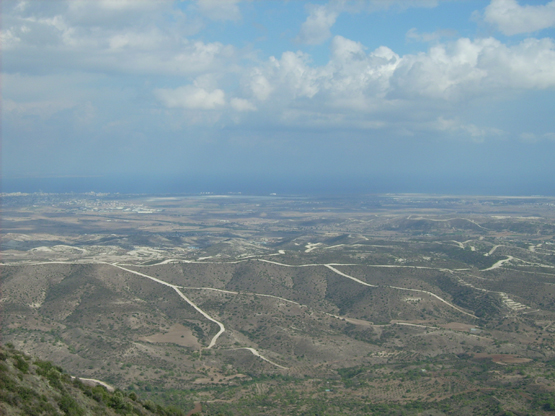On PRAYER for REVIVAL
Corrie Ten Boon: “A man is powerful on his knees.” [Corrie ten Boom (1892-1983)]
Martin Luther: “Prayer is not overcoming God’s reluctance, but laying hold of His willingness.”
Charles Spurgeon: “He who lives without prayer, he who lives with little prayer, he who seldom reads the Word, and he who seldom looks up to heaven for a fresh influence from on high — he will be the man whose heart will become dry and barren.”
Mother Teresa: “More tears are shed over answered prayers than unanswered ones.”
Mary Queen of Scots said she was more afraid of the prayers of John Knox than of an army of ten thousand men. The word of Knox’s prayer were: “Give me Scotland or I die…”
John Wesley: “Give me one hundred preachers who fear nothing but sin and desire nothing but God, and I care not a straw whether they be clergymen or laymen; such alone will shake the gates of hell and set up the kingdom of heaven on earth. God does nothing but in answer to prayer.”
One man at the Azusa Street Revival said, “I would have rather lived six months at that time than fifty years of ordinary life. I have stopped more than once within two blocks of the place and prayed for strength before I dared go on. The presence of the Lord was so real.”
Before Scandal Breaks
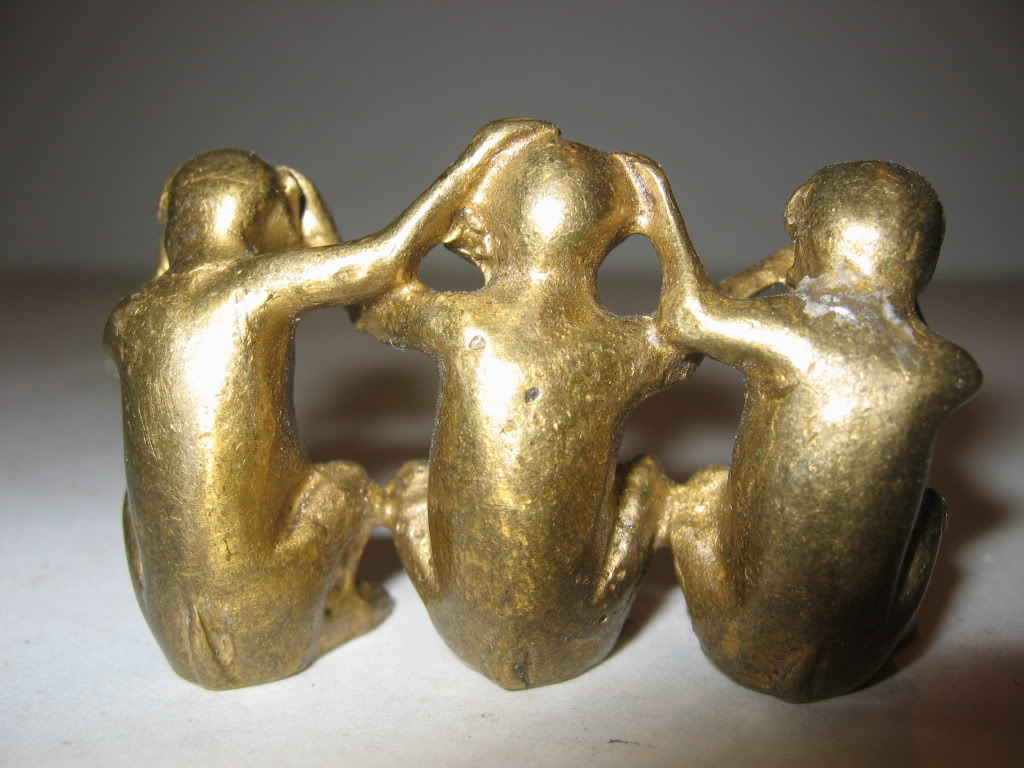 Anytime a scandal is about to be revealed, there is one logical thing that has to happen. The house needs to be cleaned.
Anytime a scandal is about to be revealed, there is one logical thing that has to happen. The house needs to be cleaned.
Operation Clean House (OCH) is a thoroughly thought through plan that is designed to be launched at a very strategic time before scandal breaks. Such timing will be after parties have used their purpose, individuals have done what they have been told, and cards have been played.
Yet, before OCH takes full effect, there always has to be a scapegoat. Every scandal needs a scapegoat; a diversion of the truth, that which fulfills taking the fault off of the real guilt. If you prematurely get rid of all evidence, there remains no person or factor on which to place blame and the true instigator of the scandal is found out. And once the scapegoat has carried away the blame and negative connotations of a scandalous situation, all knowledgeable remaining individuals of the truth have to be tactfully disregarded, threatened, demoted or fired.
Operation Clean House is designed to lessen the effects of scandal. If guilt is quickly placed and dealt with via the proper channels and procedures, then questions of why, what, where, and who are not asked. Justice has already been found and investigation of truth is not needed. For OCH to be successful, and it’s success is a must for the survival of the master mind(s) behind a scandal to come out with clean hands, then fingers will be pointed. All entities which have know-how of the scandal, have participated in the cover-ups, have been “yes men” or even have kept silent will be at risk. And when fingers are pointed, it does not matter how close you think you are to being saved or what promises where made; if you have been close to the fire, you will get burnt. Because it is the ultimate nature of scandal, that when it breaks, anybody in its close proximity will be affected.
And although it is very unfortunate, scandal is only created knowing good and well that there will be only one true survivor. A scandal will never be allowed if there is any possibility of loose ends. To outwit, outlast and outplay is the goal. For when there is only one true survivor, history can be told or mis-told in whatever manner is more appealing or self-serving to the survivor. Heroes become victims, liars become truth tellers, warriors become enslaved and history is re-written after OCH is successfully implemented. If there is anybody left around to tell the truth, then scandal likely will not break. So before scandal is to break, the house needs to be cleaned. However, what is not taken into account in scandalous events is that every action is being recorded and one day all, will be revealed.
Now, you may be thinking that I am writing about political scandal and you will be partially right. I am talking about political scandal in the church. Matthew 7:16 is my prayer that I remain faithful and my house remains clean, with no dirt or dust, but only fruits of labor for the Kingdom. And that one day when I’m called to enter my heavenly home, that because I have kept my earthly abode clean, I will hear the words, “Welcome home my good and faithful servant…”
Does the God To Whom You Pray Answer?
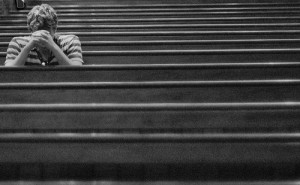 Response to Rev. Jesses Jackson’s “There’s Still More to Be Done” lecture at the University of Nebraska | by Kathryn Donev
Response to Rev. Jesses Jackson’s “There’s Still More to Be Done” lecture at the University of Nebraska | by Kathryn Donev
We as a society, as a culture, have come a long way indeed. And this is a good thing. Equality is a good thing. Independence is a good thing. Rights are a good thing. Voice is a good thing. And here comes the “however”. When our right to all of this freedom becomes perverted into selfishness is when I begin to question this idea of social justice. What is the purpose of such? Is it not for equality and solidarity together? When the latter is lacking there is no social justice. When your rights begin invading on mine then there appears to be a contradiction with neither social nor justice. Does freedom of speak serve it’s function when it invades on the opinions and belief system of another? In the midst of this rising post modernistic mentality, it appears that there is freedom for all but one group called Christians whom are becoming the minority not even standing up for themselves.
We have turned into a culture who is loyal to nothing and everything at the same time; those whom occupy for a purpose unknown to themselves, those who fight for the right to be right. All values are acceptable, all beliefs are true, all gods are God. This protest for social justice confuses and in turn controls. I do believe that everyone should have the right to fight for the right to fight but when we are fighting for acceptance of no absolutes and only objective truths there is something wrong and I cannot remain silent sitting at the back of the bus. Of course I agree with the stand against classification however a line needs to be drawn when we begin to fight against the distinction of right and wrong, of good and evil. I remember a time when right was right and wrong was wrong; when white was white and black was black and I am not talking about the color of your skin. If there is no distinction between good and evil, righteousness is obsolete. With all being relative, there is no literal Heaven or Hell. Spirituality is no longer synonymous with religious. You can pray to which ever god you choose or all gods at the same time just in case. Yet, regardless of your beliefs, the true test will be if the god to whom you are praying answers. There most definitely is still more to be done.
The Land of Pentecostals
A brief Interaction with Walter Brueggemann
by Dr. Dony K. Donev
Since I began studying Pentecostal history sometime ago, I have pondered the question of space and how we, Pentecostals, associate with it. Perhaps, on a larger scale, all Christian associate with space and location, but for Pentecostals it somehow becomes part of the identity of a given event, process or even person. This association is so strong that we simply cannot tell our history without it. And how is one even expected to tell Pentecostal history without places like the Bethel School of Healing, 214 Bonnie Brie Street and the Azusa Street Mission? Or how are we supposed to tell our story, to give our testimony of events significant and central for our spiritual life without a place and a location, which in most cases defines them all? For example, our salvation is connected the place where we were saved and sanctified; baptism with water or with fire from above; healing on the spot at a given prayer meeting, miracle service or church revival. And even eschatology, always undividable from the meeting in the clouds and the Heavenly city.
For Pentecostals, the Full Gospel teaching is a covenant theology because it ultimately subscribes to the quest for the Promised Land. But, I’ve never been able to pin point the reasoning behind this until reviewing anew Brueggemann’s study of “The Land” and comparing his ideas with Pentecostal history and praxis through the following quotes that will exchange perspectives with the questions stated above and hopefully stir further thinking.
p.5 “Space” means an arena of freedom without coercion or accountability, free of pressure and void of authority. …. But “place” is a very different matter. Place is space which has historical meanings, where some things have happened which are now remembered and which provide continuity across generations. Place is space in which important words have been exchanged, which have established identity, defined vocation, and envisioned destiny. Place is space in which vows have been exchanged, promises have been made, and demands have been issued. Place is indeed a protest against unpromising pursuit of space. It is a declaration that our humanness cannot be found in escape, detachment, absence of commitment, and undefined freedom.
Whereas pursuit of space may be a flight from history, a yearning for a place is a decision to enter history with an identifiable people in an identifiable pilgrimage.”
p. 11 “The very land that promised to create space for human joy and freedom became the very source of dehumanizing exploitation and oppression. Land was indeed a problem for Israel. Time after time, Israel saw the land of promise become the land of problem.”
p. 15 “….land theology in the Bible: presuming upon the land and being expelled from it; trusting toward a land not yet possessed, but empowered by anticipation of it.”
p. 27 “The action is in the land promised, not in the land possessed … So Jacob, bearer of the promise, is buried in Canaan under promise.”
p. 42 “Presence is for pursuit of the promise …. The new people, contrasted with the old, are promise-trusters, rooted in Moses, linked to the faith of Caleb, and identified as the vulnerable ones. His presence is evident in his intervention not to keep things going, but to bring life out of death, to call to himself promise-trusters in the midst of promise-doubters.”
p. 47 “Israel knew that in his speaking and Israel’s hearing was its life. That is why the first word in Israel’s life is “listen” (Deut. 6:4)! Israel lived by a people-creating word spoken by this people-creator (Deut. 8:3).”
p. 51 “Both rain and manna come from heaven, from outside the history of coercion and demand.”
p. 53 “Israel does not have many resources with which to resist the temptation. The chief one is memory. At the boundary [of Gilgal] Israel is urged to remember …. Remembering is an historic activity. To practice it is to affirm one’s historicity.”
p. 54 “Land can be a place for historical remembering, for action that affirms the abrasive historicity of our existence. But land can also be, as Deuteronomy saw so clearly, the enemy of memory, the destroyer of historical precariousness. The central temptation of the land for Israel is that Israel will cease to remember and settle for how it is and imagine not only that it was always so but it will always be so. Guaranteed security dulls the memory …. Israel’s central temptation is to forget and so cease to be a historical people, open either to the Lord of history or to his blessings yet to be given. Settled into an eternally guaranteed situation, one securely knows that one is indeed addressed by the voice of history who gives gifts and makes claims. And if one is not addressed, then one does not need to answer. And if one does not answer, then one is free not to care, not decide, not to hope and not to celebrate.”
p. 56 “The land will be avenged preciously because land is not given over to any human agent, but is a sign and function in covenant. Thus arrayed against the monarchy are both the traditionalism of Naboth and the purpose of Yahweh.”
p. 57 “Israel finds itself in history as one who had no right to exist. Slaves become an historical community. Sojourners become secured in land …. Non of it achieved, all of it given …. And the way to sustain gifted existence is to stay singularly with the gift-giver.”
And the following conclusions: as Pentecostals, we associate with places and location, we ultimately associate with land as part of our covenant theology, because:
1. In the land we place our own historical meaning, our part and role in history, as well as the spiritual heritage we have received and we give to a next generation; thus, place itself becomes not only where our history happens, but a defining part of our historical identity as a people.
2. Enduring the promise of a land not yet seen, but already received by faith, has indeed been the formative factor in any and all Pentecostal movements around the globe, as well as the initiative to restore the social order for peoples whose land has been taken away unfairly. We have even learned, that when the Promised Land becomes a land of problem, we must return to the promise in order to remain a movement after the move of the Holy Ghost and not merely a nominal denomination.
3. As humans, we localize the omnipresence of God to the place of our experience with God – the place where God has become personal for us. And this is the place, where we dare say, we have received the promise of God. Although His promise may not yet be visible in reality, having come from our experience with God, it creates a reality which is much more real than the present reality. In that sense, the very act of receiving the promise that comes from outside of history and through hearing the voice of God, recreates our reality and future.
4. Main, among other temptations for us, is the temptation to forget the land, the place of promise and meeting with God – where we come from, where we have been and where we are going. Just as Israel, this act of forgetting denotes our ceasing from being a historical people.
5. And just like Israel did, Pentecostals find themselves without the right to exist. Yet, the association with the land, and not merely any land but the Land of Promise, gives us not only a right of existence, but also an identity which no one, not even us, can change or redefine, except the Giver of the Promise. And this is the function of the covenant and the association of our personal experience with God to a place, a location, a spot in history where our lives were once and for all changed for eternity.
Mission-Minded Missionary or International Harvester?
A New Perspective on the Idea of Mission Work
By Kathryn N. Donev
I have never seen myself as “mission-minded.” To be honest I don’t even really know what this statement means. Maybe it is an out-dated phrase, but during my college years I would constantly be faced with these words. Then when I married and moved overseas I met many people whom identified with this saying. However, I noticed that many of these “mission-minded” people enter the international context completely the opposite because they were lacking in culture sensitivity. And for the most part, this unfortunate insensitivity was unaware to them. Without being sensitively aware of your location there is limited connectedness to the people to whom you attempt to minister. And in addition when there is the other barrier of language, one at times works in a context of misunderstanding and ineffectiveness regardless of how “mission-mind” one may be.
So before answering the call to missions and going on your first cross cultural experience, there are a few things to consider:
1. Be informed about the cultural differences of the people you are trying to reach because your good intentions may be misunderstood and even offend.
2. Keep in mind you are not going on a site-seeing tour but to help others see the true light.
3. Just because something makes sense in your language, doesn’t mean it will make sense interpreted into a foreign language. Clichés are to be avoided.
4. Remember that you are going to lift up others and not yourself. The song that says “It’s all about YOU,” actually refers to Christ.
5. Consider that the people you are ministering to are real and not objects to be put on display in a savvy PowerPoint after returning home from your trip.
6. Just because you go to a foreign country doesn’t make you a missionary.
7. It is when you put yourself in the shoes of the people you are helping, that you just may learn some do not even have shoes to wear.
8. Aid is not the answer to all problems. Sometimes the people you are going to assist have real problems and spiritual needs.
9. It is not the power of money that saves souls, but the power of a Heavenly Father.
10. There is a major difference between being “mission-minded” and being an international worker.
If you want to genuinely minister to another, you have to meet the needs that they have and not the ones you want them to have. Not everybody is in need of a pair of socks or a toothbrush. Not everybody has a cookie cutter problem that can be fixed with one solution, which is found in a brown paper bag. If you want to be effective on the field, consider the difference of being an international worker versus being “mission-minded.” Perhaps, you should listen to where God is calling you to work and not be influenced by emotions of where it would be exciting to visit. And just maybe consider embracing the idea of working tirelessly instead of simply being mission-minded without a clue. Consider that perhaps the answer of you not being effective in your context is not to go across seas to try to be effective in another context. It’s great to have your mind on missions, but it is insufficient to only think about missions on a whim; if this is even what this statement “mission-minded” means at all.
Looking Out of the Corner of Their Eyes: An Analysis of the Trend in Spiritual Development of Youth in Bulgaria
The Bulgarian Pentecostal movement is rooted in the Azusa Street Holiness Revival, which began in April of 1906. As a result of the revival, which followed throughout the United States less than a decade later, denominations such as the Church of God (1896) and Assemblies of God (1914) were established and sent missionaries to foreign lands including Bulgaria. After Assemblies of God missionaries to Eastern Europe Zaplishny and Voronaev embarked on their missionary endeavors in the 1920s, Bulgaria officially received the message of Pentecost. However, when Communist Dictatorship began in 1944, religious freedom was repressed and forced Pentecostal believers underground for 45 years until the Fall of the Berlin Wall in 1989.
From this oppression, Christians became creative in where and how they would gather. Services were held in secret rooms, moving from one house to the next and literally underground. During difficult times they would even gather in secluded mountain plains and hold services, which would last for days at a time. Even to this day, this tradition is kept where every year believers will assemble together for a time of praise and worship. And it is from these times that branched other church movements, which attempt to replicate this experience with a focus on evangelizing the youth of Bulgaria. However, some of these attempts have not been very successful. These movements successfully target young people, but the experiences which they are having are not as their fathers and grandfathers. Unfortunately, they are somewhat superficial and have become a time of leisure and socialization. There has been a perversion of the genuine experiences of the past in this attempt to simply copy what is happening without having a sincerely encounter with God. The church attempts to keep the tradition without having the experience.
Yet, in the midst of these movements of camps, rallies, mega services, concerts, there are young people which do have a genuine encounter and are on fire for God. But unfortunately, these movements with a lack of a better word are not properly equipped with a follow through plan in which the youth can be plugged into a local church where they can be discipled. It is almost as if the churches do not have an internal program for youth because they are relying on the many external activities to minister to their youth.
Many Bulgarian congregations are struggling with how to motivate their youth locally. They are confused why during the times of conferences and camps youth appear to be on fire for God, but when they return to their local church, for the ones who have a local church, they “lose” this drive. The simple, simple answer to this is that our youth are lacking in a strong internal biblical foundation. Youth need this foundation to build on in order to genuinely grow in Christ. Therefore, the churches’ focus should be to educate our children and give a solid Biblical basis as opposed to waiting until they are lost to gather them in a camp and attempt to reach them. If ones motivation is based internally, no external factor will be needed to motivate your youth. There is no substitute for an internal passion for Christ for when something is internal it does not come and go with a movement or trend. This foundation comes from our fathers and mothers and from the local church.
Youth are ready for a serious authentic move of the Spirit, which is Biblical based in the foundation of the roots from which their faith is grounded. When understanding from where you came, you will be able to appreciate your here and now. Meaning that in identifying with your roots you know who you are and do not waiver with movements. But for those whom have had a genuine encounter on the mountain tops, so to speak, where are they to go? Who will father them? With the crisis in leadership in the churches of Bulgaria, there is a spirit of discouragement and distrust among believers. This is harsh to say, but should not be kept silent simply because of pride. Only when Bulgaria is ready to recognize this, will it be ready to genuinely minister to youth. It is only then that the young people will have a place to go and someone to minister to them. For how can one minister to another when they themselves are occupied with bitterness and power.
Children from birth watch everything. All is new to them, everything is interesting and they are instinctively curios. This curiosity is a God given desire in order to learn and grow. When a child is learning to pray they are told to bow their heads, close their eyes and listen to the words of their parents, but if you observe this process closely you will notice that a child will at first peak around. Why do they do this? Initially, one might think that a child is just playing around and not taking prayer seriously, however this is not the case. They look out of the corner of their eye and peak around in order to watch and see what you do and how to pray. They cannot learn when their eyes are closed. They have never before closed their eyes to pray and need a model.
So just as children look to their fathers and mothers to learn how to pray, the Bulgarian youth are looking to their spiritual fathers to know how to pray. With much sorrow I say the following: these children do not like what they are seeing. They peak out of the corner of their eye and see arguing, hostility, selfishness, depression, burnt-out, and worst of all, they do not see their fathers praying. They do not see their fathers fasting. If a father does not pray or fast how will the children know how to do these biblical acts. This lack of spiritual discipline leads to a rebellion against the church in which you hear from the mouths of babes “I believe in God, but I don’t believe in the church”. This factual quote should be eye opening. Yet instead, we keep our eyes wide shut. We need to overcome the lie that if we do not see things or problems, they do not exist. It is time to listen to what we know is truth.
So on one hand, we have a lost generation that does not have any faith in organized religion and on the other, we have a generation of youth that is hungry if not starved. They are hungry for solid foods and tired of living off babes milk. They are ready for a real experience and need spiritual parents. Who is willing to be that spiritual father? Who is willing to stop arguing? Who is willing to open their house again to be a home for the spiritual orphans of Bulgaria? Let the church once again be a place of refuge and not a place to be prostituted out to the highest bidder. Let the pastor genuinely be a father again instead of a corrupt politician. Let the children of Bulgarian have a voice, because if their voice is taken away today, they will have no future tomorrow and be lost for an eternity. This is not a price we should be willing to pay.
This article is based on a word the Lord gave me on 09/09/2010 that “The Children of Bulgaria are looking out of the corner of their eyes up to their fathers and not liking what they are seeing”.
-Kathryn N. Donev
MissionSHIFT (Part 1): Paradoxes in Missions
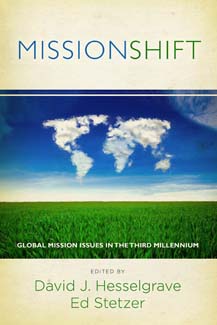 This present article on missions is a part of a dialogue with Ed Stetzer and David Hesslegrave’s new book MissionSHIFT.
This present article on missions is a part of a dialogue with Ed Stetzer and David Hesslegrave’s new book MissionSHIFT.
The following thoughts on missions deserve a proper introduction, which defines my personal approach in responding to the issue at hand as drawn from both experience and education. They are defined via my being Bulgarian born, American educated, and having served as a national worker in my home country for over 20 years while having dedicated 11 years to the earning of three higher theological degrees from Baptist and Pentecostal educational institutions. Ministering with my American born wife in Bulgaria has demanded a response to a number of vital questions in the missional context of the ministry, which vary from micromanaging how to go through today to a much broader and purposefully strategic planning for the future of the Bulgarian Evangelical Movement as a whole. The most important result of this process has been the foreseeing and training of a new missional and visionary generation for the ministry to which we have dedicated our lives in the past several years on both formal and personal levels. Thus, finding a working paradigm between 21st century theology and current missiological trends for us personally has not only been an interest in trends and thought, but a way to survive post modernity and do actual ministry.
History of Missions
With this said on our personal ministry history and missional experience, we turn to the historic overview of missiological trends in the first essay of MissionSHIFT, which has sparked some controversial responses in the book. The text is undoubtedly interesting and fulfilling, while presenting a much needed juxtapose with the similar historical attempt in the third essay of the book. However, the reader is surprised by the quick jump through the Constantine era, which quite frankly forgoes Eastern Orthodoxy and Catholicism, major contributors to two main branches of Christianity and main players in a period some one millennial long when evangelicalism simply did not exist. And while it is understandable, how these two church institutions may remain far to the interest and knowledge of the Western mindset, it also must be stressed that this very period of church history is responsible for setting the stage for the Reformation and the birth of Western English speaking church as a whole, as both Luther and Wickliffe draw from Eastern Orthodox missiological trends to justify their own call for the reformation of the church and identify themselves with the earlier Bogomils’ movement.
Globalization of Missions
When exploring virtually all branches of Christianity, it is clear that globalization of missions begins nowhere else but in its localization as a ministry of the congregation. With this said, the consideration that missional terminology and action emerges localized in predominantly in North-Western setting is a dangerous one. Philip Jenkins’ Next Christendom has made a strong case for missional theology and action as related to the New Testament church emerging nowhere else but in the East, beginning in Israel with the Great Commission of the Lord Jesus Christ. And while Jenkins’ prediction stops with the Americas and perhaps Australia, our dialogue with his work in 2004 projected that the missional message of the Gospel is completing a full circle around the globe, going from East to West, and returning back to its starting point in Israel. Any opinion that characterizes church missions as purely or predominantly an Western endeavor is imperialistic at best, regardless of its cultural and anthropological context. Missing to discover there is a world existing around us till now, does not make us missionary pioneers, but it does makes us ignorant.
Donors and Sponsorship
The same argument is valid for the opinion contributing the success of missions (in the 19th century and beyond) to (again predominantly western) donors and sponsorship. While the contribution of philanthropy and financial support to missions cannot be denied on any logical ground, eliminating all other factors toward missional success is quite a dangerous endeavor. Even at this contemporary time of missional history, missional agencies make the argument that a one time offering of some $30 is sufficient to save one human soul somewhere in the world. This cheapening of missions through placing a cash value to its ministry must be stopped at once. No price could be assigned to the human soul, no other but the blood of Jesus. And any evangelical mission having embraced such approach is no different than the 16th century papal pontificism of indulgencies and must be reminded of Luther’s 95 Thesis again. It is a terrible, horrific mistake to define the Missio Dei as missio mammon. {http://goo.gl/jZTjk & http://goo.gl/fDzS}
Back to the Basics
The discussion also introduces the so-called “three self model,” which is still practiced by missional agencies around the world. The idea is to start and build a church abroad to a point where it becomes self-sufficient, as in most cases the new community church resembles the parenting church in theology and praxis. The problem arises with the understanding that the meaning of “self-sufficient” changes quite a bit with time and location, to the point of being meaningless today in the context of globalization and postmodernism. If once upon a time, “self-sufficient” meant a church network growing globally, but directed from one locality somewhere in the northwestern hemisphere, it means this no more and most probably it never will. It is simply impossible to create a self-sustainable paradigm of a church movement with truly global growth and leadership localized to a certain geographical, economical, philosophical or social region.
Missions and the Trinity
Possibly the best point in the discussion in relationship to the first essay was made as a call for the recovery of the Trinitarian view on missions (p.44). The 1960s shift of missions from the Church to God and the world is also properly acknowledged as a step in that direction. So is the discussion about anthropological or God centered missions, which Jesus fulfilled 100% both ways. The argument for a Trinitarian Mission seems most necessary in our current evangelical-charismatic context, but when your historical observation on missions misses the role of the Eastern Orthodox Church, where the doctrine of Trinity is theologically confirmed, it leaves a very little argument in favor of Trinitarianism. And even more, it leaves one movement without its historical identity as a Trinity believing church.
Evangelical or Not?
But instead of picking from doctrines and dogmatic, perhaps the discussion on 3rd millennium missions needs to be focused on the main missional shift, namely the moving of the focus of missions toward evangelicals. It seems like what needs much more deconstruction in terminology is the view on missions as an evangelical entity (about p. 20). Before defining missions as evangelical, it will be beneficial to redefine anew the term “evangelical,” which gains quite a bit difference in consistency when contextualized to postmodern globalization.
The social role of the Gospel is unarguably its strongest motivator for the move from this world toward the Kingdom. It is this move that constitutes the very basics of missions and mission mindedness. The preaching of the Gospel not only does not exclude but motivates a social transformation through the salvation of the person, which serves as the personal motivator, first for transformation of one’s mentality and then for social transformation. Translation of the Bible, focus on education, upbringing of culture and national belongingness were not only procured by early missionaries, but become the very essence of a paradigm that move whole communities toward a chance. And the church was the author of such movements, effectually advancing whole nations toward a democracy based on puritan principles.
The early Reformers drew from the same evangelical principals as modern day reformed theologians and practitioners do. Yet, it must be dully noted that reformed theology and praxis in the modern missional context of globalism and postmodernity is a minority at best. The fastest growing and largest Pentecostal charismatic wing is far from ever subscribing to basic reformed principles as divine predestination, preteresitc or postmillennial eschatology. And this does not make us less evangelical. On the contrary, it demands the rethinking of a new theological view on missiologoy, which forgoes 16th century reformism and addresses modern day evangelical churches by speaking to the issues of today. For if a person cannot chose salvation, a person cannot chose anything at all. {goo.gl/FCCso}
So What Should Missions be Like?
Before all, missions must remain practical, which denotes being created by people who have practiced missions in order to be able to others that will practice the ministry mission. If ministry is the practice of the Kingdom, missions is its outposts far beyond the walls and the borders where things are but practical. Only when missional thinking is practice oriented, can become a practice of mission. My practical advice for Missions in the 3rd Millennium follows with several characteristics of the ministry of missions in the 21st century. Our missional approach must be:
1. More mission minded than agency structured
2. More missionary focused than leadership centralized
3. More operational than organizational
4. More result oriented than self and strategy containable
5. More praying than thinking while more feeling, than cognitive
6. More giving than fundraising oriented
7. More focused on the Dominion of the Kingdom, than the denomination.
Liked this publication? Here are some more articles on missions:
» 8 Simple Rules for Doing Missions in the Spirit
» M3: Missions for the Third Millennium – A Public Position
» Church of God Eastern Europe Missions: Leadership, Economics and Culture
» First Bulgarian Mission in Chicago (1907)
2011: The Year of the Bamboo
While preparing our annual report of over 50 completed projects in 2010, we shared a few thoughts with a close friend and partner in the ministry. For one or another reason, our impression has been that things appear to be moving slower than expected while working with the Bulgarian Church of God in the context of some 40 various denominations in the period 2005-2010.
Our efforts in the ministry have contributed to several major developments like a ministry center in the capital Sofia, the start of a national Sunday school program and a master’s program in chaplaincy, the international X Youth Event, national youth ministry Bible camp and the Leadership Training Seminar (LTS) to mention a few. But this success in ministry has not been without many painful and exhausting days and nights of praying, planning, organizing, gathering the needed resources and trying to stay away from destructive politics and man-made divisions.
So it was not until the last quarter of 2010 that our efforts began reshaping the reality around us as we quickly realized the long-term projects had finally come to completion. As a result, just during the last three months in Bulgaria, we brought to finishing point major goals of our ministry and completed work which generally would have taken us a year time. And it was awesomely encouraging as we watched goal after goal being completed literally over night.
Our friend listened closely to this great testimony of the ministry and quickly compared it to the story of the bamboo. The strongest and fastest growing wood on the planet does not grow 20 inches over night without several years of long preparation. During this time, the roots spread rapidly in the soil clamping together in a strong underground system that will serve as the foundation to the future plant. They remain unseen under the surface until the day the first spurs shoot out of the ground.
2011 will be the year during which ministries with global vision that have worked hard and long for years, following Spirit led investing of time, efforts in resources in projects and goals that seem unreasonable, unnecessary and foolish to others, will see the spurs of their efforts shooting out of the ground over night. And then, no one will be laughing at the vision any longer.
For others, it will be a wonder, but these ministries will know that many years of hard labor and efforts have finally brought long waited results. For the only way to have a fast growing strong ministry is to take the time for preparation. 2011 calls for an end of preparation and a time of new growth.
X 10.10.10 Cyprus Reflection
Every year our ministry organizes a National Mega Youth Event we have come to call “X”. This year our event was held on 10.10.10 on the island of Cyprus. From the invitation of Pastor Rumen Mitodiev, we went to Cyprus expecting greet things. We spent there two weeks during which we were able to minister to and train the members of the national network of new and growing Bulgarian churches that have formed within the past several years as a direct result of the increase of immigration to the island.
Cyprus is an island located at the eastern end of the Mediterranean Sea just above Israel and 47 miles south of Turkey. It was once a British colony until 1960 when it gained its independence. It is the only militarily divided country with a Greek and Turkish zone. With this division brings a challenge in ministry unique to any other. However, where the Spirit of the Lord is there is liberty and no division among believers. The Bulgarian churches in Cyprus bring this refuge not only to Bulgarians, but Romani (Gipsy) and Turkish people as well.
During our time on the island, we faced much spiritual warfare as one can imagine with Cyprus being among the main destinations for human trafficking and highly influenced by black magic and Islamic beliefs. Yet, being faithful to the Cause our team continued to press on. Throughout our time with the various Bulgarian churches, we continued to receive one praise report after the other including healings, deliverance and people being restored to the faith. And in the Sunday morning service alone on 10.10.10 over 50 people came to the altar to receive Christ as their personal Lord and Savior. This makes any battle worth the fight and all the Glory belongs to God.
Prophetic Presence: The Sign of the Seers
 For many years now, as a student of both Pentecostal theology and history, I have always wondered of the ever-present desire for Pentecostals to associate themselves with physical addresses. It is indeed strange, for as a movement of the Spirit we have always strived to remain on the go, being always persecuted or ever-changing as people of God. So I am astounded every time I come across a historic attempt to redefine our identity with a place or a location.
For many years now, as a student of both Pentecostal theology and history, I have always wondered of the ever-present desire for Pentecostals to associate themselves with physical addresses. It is indeed strange, for as a movement of the Spirit we have always strived to remain on the go, being always persecuted or ever-changing as people of God. So I am astounded every time I come across a historic attempt to redefine our identity with a place or a location.
The examples are many. From the very inception of the term “spirit-filled” people on the day of Pentecost, we have always associated our experience with an attempting to restore the identity of and struggled to return to the spiritual context in the experience of the Upper Room – a definite location in the city of Jerusalem. Then Paul, before ever answering his apostolic call and entering what would turn to a global ministry, was instructed to go the street called “Straight” – and this was not just a personal experience of Paul, but a corporate calling that includes the prophetic gift of another man and affected the future of the Early Church as we know it.
The early Pentecostal revivalists are best known with the name of Azusa Street, but not before establishing various locations across the country setting a spiritual rout, a geographic walkabout from the Bethel Bible College to the Santa Fe Mission, reaching the small house at 214 North Bonnie Brae Street and the Azusa Street Methodist Mission by 1906.
Synan records that there: “They shouted three days and three nights. It was Easter season. The people came from everywhere. By the next morning there was no way of getting near the house. As people came in they would fall under God’s power; and the whole city was stirred. They shouted until the foundation of the house gave way, but no one was hurt.”
But it was not until the morning of April 18, 1906 that the prophetic presence of the Azusa Street Pentecostal revival received its full recognition. Once the Great San Francisco earthquake hit California, just as early Pentecostals had prophesied, there was no need for preaching or witnessing any longer. Their prophetic presence was evidence in full. For the assigned geographical location for our vision contributes little to our identity in the ministry. It is a prophetic sign for the people we witness to. And this is a Biblical principle.
John the Baptist associated his ministry with the desert. John the Apostle, with the island called Patmos. The Old Testament prophet laid on his side for 390 long days being seen by all. That is one long year and one whole month according to the Jewish calendar. Then 40 days more on his other side, just like the bodies of the two prophets will lay dead for the three days of Revelation. The Seers were there, seeing the future and proclaiming it to the present through nothing less than a prophetic presence. For the Seers must be seen in order to reveal the vision they have seen in the Spirit, in order that both the world and church blinded by sin, can see the vision of the unseen and invisible God.




